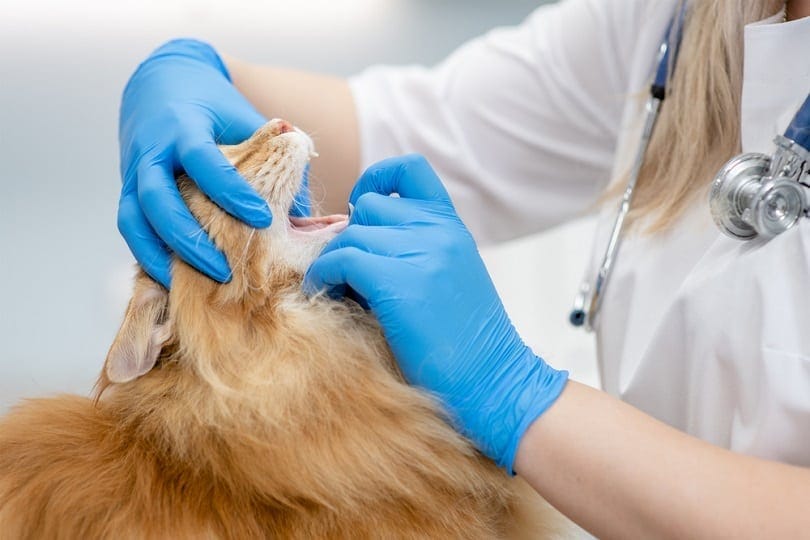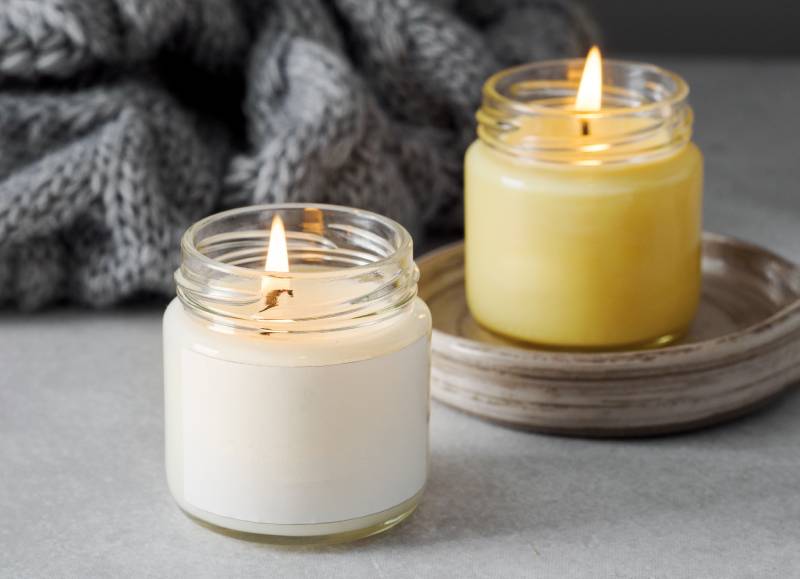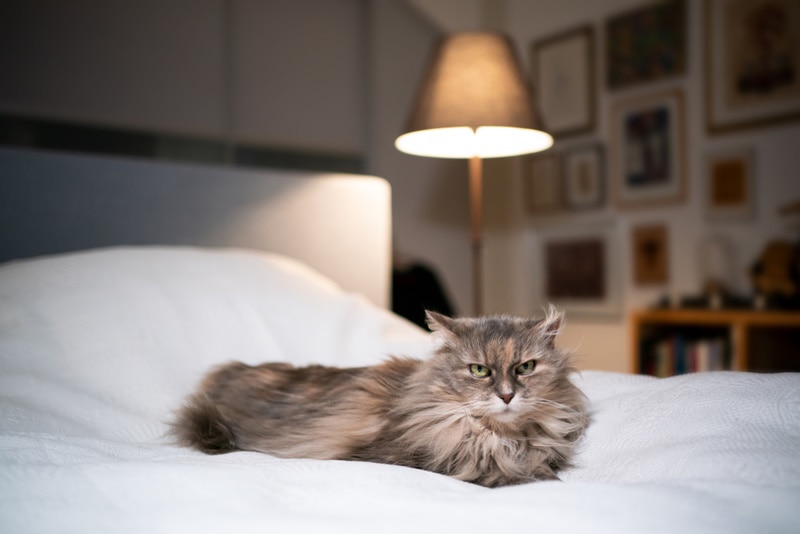Are Scented Candles Bad for My Cat? Vet Approved Facts & FAQ
Updated on

There’s nothing like the smell of a scented candle wafting through your home to help you relax and get cozy after a long day at work. Whether it’s clean linen in the spring or warm apple pie in the fall, there’s just something about lighting a scented candle that brightens your mood and helps you unwind. Not to mention the fact that scented candles make your home smell amazing.
If you have candles and cats, you might have cause for concern because some scented candles have harmful ingredients, and unscented candles present other dangers.
What Are the Different Types of Candles?
It’s helpful to know the types of candles available before we explore the dangers of candles for cats. The types of candles available include the following:
- Beeswax
- Paraffin wax
- Liquid wax
- Palm wax
- Soy wax

How Are Candles Dangerous to Cats?
There are a few ways that scented or unscented candles can be dangerous to your feline companion. While not all scented candles are hazardous to your cat, some contain harmful ingredients.
The Burn Risk
Cats are very curious creatures, and the flickering candle flame can draw their attention. That’s why keeping a close eye on candles when you have cats or young children around is essential. A curious cat may get too close to the flame and burn off their whiskers or worse.
The Essential Oils and Chemicals
Scented candles often have essential oils and chemicals in them. If your cat has allergies or asthma, the oils can cause the cat to have an attack. These chemicals can be ingested, inhaled, or absorbed through your feline’s skin. When your cat gets any of the chemicals on his skin, his first instinct will be to lick it off. If you suspect your cat has ingested or gotten essential oils or chemicals on his skin, it’s best to make an appointment with your vet for diagnosis and treatment.

Are There Other Scented Products That Are Toxic to Cats?
While not all scented candles are toxic to your feline pal, it’s best to stay away from them if you feel that they irritate your feline. However, aromatic candles aren’t the only products you have to be concerned about when it comes to your cat. There are a few others that you need to avoid as well.
- Dry potpourri
- Liquid potpourri
- Incense
- Air fresheners
While there are different reasons that these products can be toxic to your cat, it’s best to keep them away from your pet.
Which Products Are Safe for Cats?
Of course, you’ll want to freshen your home and make it smell good, especially with a cat with a litter box in the house. Here are a few products you can use in your home to keep that are safe for felines:
- Charcoal purifying bags
- Pet odor eliminators
- Febreze
- Air purifiers
- Natural wax candles
While these products are safer around your furry friend, it’s still important to be careful with them around your cat. For example, even with natural wax candles, you need to ensure that your cat doesn’t play with the flame.
Tips for Keeping Your Cat Safe Around Candles
While we recommend avoiding using scented candles altogether if you have a cat, it is possible that you just love the scents and want to keep using them. Luckily, there are a few things that you can do to keep your cat safe around scented candles.

Make Sure the Room Is Ventilated
If you’re burning a candle in a room where your cat will be, ensure the room is well-ventilated. You can do this by opening a window or door, which will allow the smoke to dissipate before it does any harm.
Cover Your Candles
When you’re not burning the candles, cover them with a lid once they are extinguished. This will keep your cat from licking the candle when it isn’t lit When the candle is lit, put it in a high-walled candle holder or a candle holder that has a grilled top.
Don’t Leave Your Candles Burning for Too Long
Never leave a candle burning for hours, and never leave it burning all night. Not only is this dangerous for your cat, but it’s also dangerous for you and your family because it could start a fire. Ensure to extinguish the candle when you leave the room, especially if it’s in a room where your cat likes to stay.
Keep Your Cat Away from the Candle
One surefire way of protecting your cat from scented candles is to keep the cat away from the candle altogether. For example, you can burn candles when the cat is sleeping somewhere else. You can also put your cat in a different room while you’re burning a candle and let the cat back in once you’re done and the candle is extinguished and covered once again.
Summary
While it’s best to avoid using scented candles, if you know your cat is allergic or has asthma that the candles can irritate, there’s no reason why you can’t have cats and burn your candles simultaneously. You can follow the tips above to ensure that your cat doesn’t come in contact with the candle or that the candle doesn’t make your cat sick. If you feel your cat is ill or has gotten into a candle, it’s best to contact your vet for diagnosis and treatment. The vet can also give you recommendations for natural, safe products that can keep your home smelling fresh and clean while keeping your feline healthy and happy at the same time.
Featured Image Credit; Maya Kruchankova, Shutterstock












